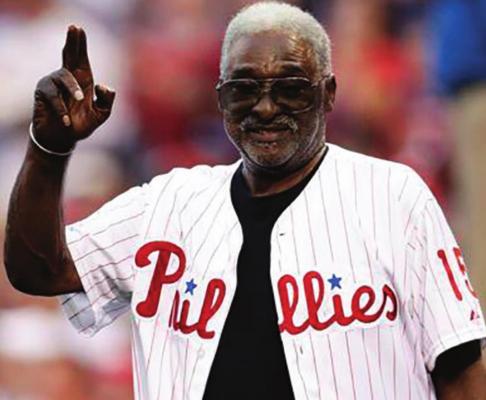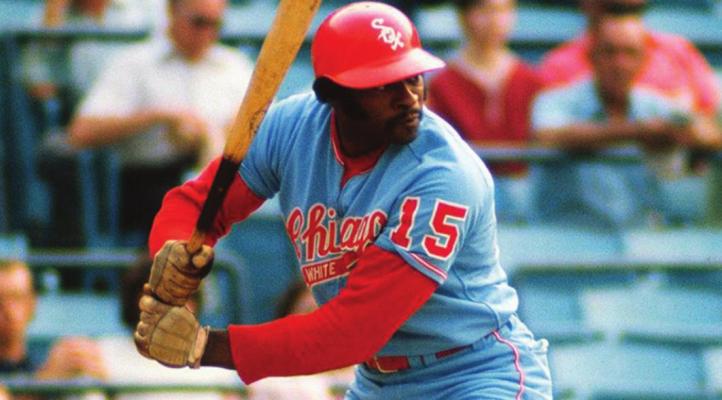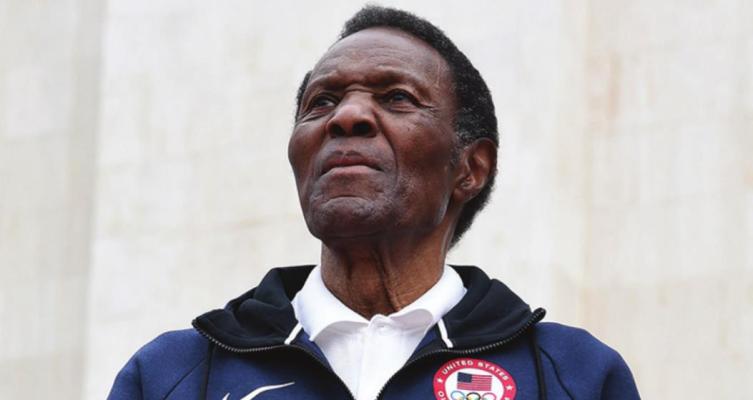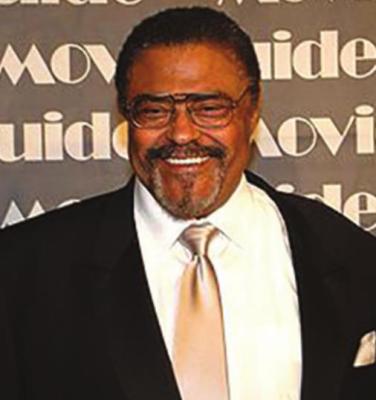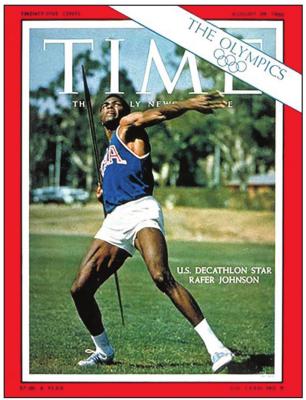More sports icons have passed on
As has been the case all too often these days, I learned of the passing of another sports icon this week. The one I am referencing is Dick Allen who played baseball for a number of teams throughout his career. I didn’t know this until I read his obituary, but Allen was older than I am, but just barely.
I remember when Allen broke in with the Philadelphia Phillies back in 1964. He was known in those days as Richie Allen and caught the attention of sports writers and broadcasters right away with his sweet batting swing that produced 29 home runs in his first full year in the majors. He was a very good athlete, but was known primarily for his batting skills. He hit 351 home runs during his 15-year career.
He developed a reputation for having a bad attitude, and the Phillies eventually unloaded him on the St. Louis Cardinals where he had a pretty good year in 1970. In that year with the Cardinals he hit 34 home runs and drove home 101 runs, but they dealt him after the season to the Los Angeles Dodgers. Again he had a good year with the Dodgers in 1971, but they traded him after that year to the Chicago White Sox, where I got to see him play.
For those who don’t remember, baseball broadcaster Harry Caray was best known for his years with the Cardinals and Chicago Cubs. But in between those two jobs, Caray worked a year for the Oakland Athletics and then for a time with the White Sox. I lived in Illinois during this time and spent time switching from Cardinals to Cubs to White Sox broadcasts. I remember Caray referring to Allen as “Dick.” Knowing Caray wasn’t very careful about people’s names--I just assumed that he was making another one of his famous “gaffes”. For example, he started pronouncing the name of Julian Javier the way it would be pronounced in English, Joo-li-un Jav-i-er instead of Hoo-lee-ahn Havi-air. Surely he meant to call Allen “Richie” but used “Dick” instead under the assumption that all Richards go by the nickname “Dick.”
Turned out that Harry was correct in this case. Allen had confided to the White Sox announcers that he hated the name “Richie” and preferred to be called “Dick.”
Allen went on to have a huge year in 1972 with the Sox. After the season he was named the American League Most Valuable Player. He led the league with 37 home runs and had 113 RBI’s. He batted .308 in that first year in Chicago. I had the privilege of seeing Mr. Allen play in old Comisky Park. I saw him hit a monstrous home run which in retrospect may have been the longest home run I have witnessed. Once the ball left the bat there was no doubt that it was going to go far. I was sitting in the left field bleachers and watched the ball easily clear the center field fence which was 450 feet from home plate. The ball not only cleared the fence but went high up in the center field bleacher seats, which were covered by a green tarp to make it easier for batters to see a ball on its way to the plate. The next day the Chicago Sun-Times story described the home run as the deepest the reporter had seen in his many years covering the Sox.
For some reason, Allen never was a beloved figure in baseball. The fans in the places he played never warmed up to him. He had what many feel today was a bad rap as a player with a terrible attitude. That came partly because he often spoke out against what he felt was unfair treatment by management for himself and some of his black teammates. He said once that he thought that he had experienced as many racial slurs from fans as Jackie Robinson may have had in his early years in baseball. The difference Allen said was that Robinson did a good job dealing with the racial animosity directed towards him. “I didn’t know how to respond well to this kind of treatment,” Allen said. Because of the reputation for having a bad attitude he has not been voted into Baseball’s Hall of Fame. Many of his former teammates believe this is an injustice that needs to be corrected. Hall-of-Famer Mike Schmidt is very vocal about Allen deserving a place in the Hall. Schmidt looks back at Allen’s years on the Phillies as having been the most talented player on the team. That is saying a lot because Schmidt was on that team along with others who have been inducted into the Hall. Schmidt arranged for the Phillies to retire his No. 15 and the White Sox also have fallen suit.
Another recent passing among prominent sports figures was that of Rafer Johnson, who died on Dec. 2. Johnson, you may recall was a decathlete in the 1956 and 1960 Summer Olympics. He won the Silver Medal for the United States in the Decathlon in the 1956 games in Melbourne and then won Gold in 1960 in Rome. As an aside, the Rome Olympics was the one in which Ponca City wrestlers Doug Blubaugh and Shelby Wilson won Gold medals in their sport.
Johnson was an outstanding high school athlete at Kingsburg (Calif.) High School and as a sophomore his high school coach took him to watch famous decathlete Bob Mathias compete in the 1952 Olympic Decathlon trials. “I could have beaten most of those guys,” Johnson reportedly told his coach. He went on to compete in high school decathlon competitions and as a freshman at UCLA won gold at the Pan American Games in Mexico City. In 1956, he qualified for both the long jump and decathlon events in the Olympics, but an injury made him scratch the long jump and hampered his participation in the decathlon. Despite this he won a silver medal. His defeat in Melbourne was the last he would ever suffer in competition.
In 1962, I heard him speak while I was a student at the University of Kansas. He was a good speaker and told lots of jokes, which qualified him as a good speaker to me at the time. Johnson was always popular with the other students wherever he matriculated. In high school he was student body president for two years and at UCLA, he served as his class president one year. I didn’t know this until I read his obituary, but he played basketball for John Wooden at UCLA and was a starter on the 1958-59 Bruins team. Wooden said that Johnson was a good defensive player, but in regretting that in his earlier years as a coach he didn’t allow his teams to fast break, said “Imagine Rafer Johnson leading a fast break.” Recognizing his athletic skills, the Los Angeles Rams drafted him as a running back in the late rounds of the 1959 draft. Prior to the 1960 Olympics,
Prior to the 1960 Olympics, actor Kirk Douglas encouraged him to try out for a part in the film “Spartacus.” Johnson did and won the part, but had to give it up due to AAU rules which said that being paid as an actor would jeopardize his “amateur” status.
Something else I may have forgotten, if I ever knew, was that Johnson teamed up with football player Rosie Grier and writer George Plimpton to tackle Sirhan Sirhan after Sirhan shot Robert F. Kennedy in Los Angeles in 1968. I don’t know about Plimpton, but there is a sure thing that Sirhan wasn’t going anywhere with Grier and Johnson having pinned him down.
Johnson became an actor with his first movie being “The Sins of Rachel Cade,” which came out after the 1960 Olympics. He appeared in 12 movies, the latest being “Think Big” in 1990.
As I have noted before, seems like we are losing too many sports icons these days. Maybe it is just a sign I am getting older.

